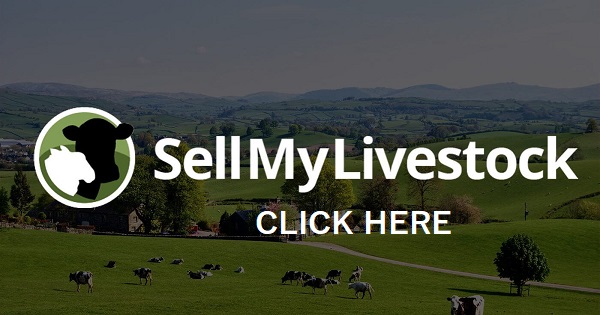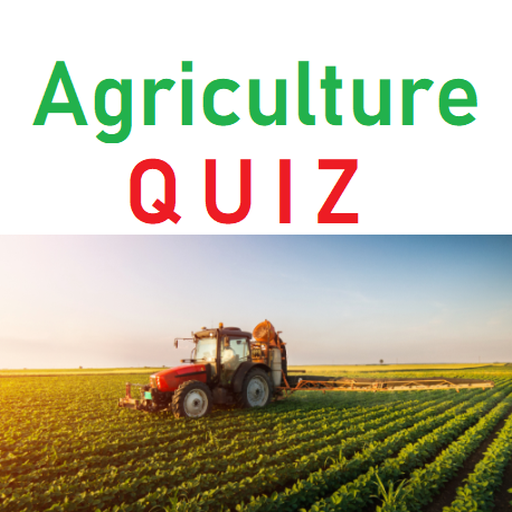Test Your Farming Knowledge with our Quiz
Test your skills about farming by taking on a series of challenging questions designed to evaluate your knowledge of agricultural practices, techniques, and concepts. Whether you’re an aspiring farmer or simply interested in learning more about this vital industry, this quiz will put your understanding to the test. From crop cultivation to livestock management, irrigation methods to pest control strategies, each question offers a glimpse into the multifaceted world of farming. So, roll up your sleeves, sharpen your mind, and see if you have what it takes to thrive in the dynamic and ever-evolving field of agriculture.
Quiz Start
- What is the term for the science and art of cultivating plants and livestock?
- Which crop is often referred to as the “staff of life”?
- What is the primary purpose of a combine harvester?
- Which of the following is NOT a type of livestock? a) Cattle b) Poultry c) Aquaculture d) Oats
- What is the process of rotating crops in a systematic order to improve soil fertility and prevent pests?
- Which of the following is NOT a method of sustainable farming? a) No-till farming b) Agroforestry c) Desertification d) Organic farming
- What is the name for the area of land used for agricultural purposes, including farming and animal husbandry?
- Which of the following is NOT a primary factor influencing crop growth? a) Temperature b) Soil fertility c) Geographic location d) Amount of sunlight
- What is the term for the process of collecting honey from beehives?
- Which of the following is NOT a greenhouse gas emitted from agricultural activities? a) Methane b) Carbon monoxide c) Nitrous oxide d) Carbon dioxide
- What is the practice of raising fish in tanks or enclosures called?
- Which farming practice involves planting a single crop species over a large area?
- What is the term for the process of removing weeds from fields to promote crop growth?
- Which of the following is a method of irrigation that involves delivering water directly to the roots of plants?
- What is the term for the practice of breeding plants or animals to have desired traits?
- Which type of farming involves growing crops without soil, using nutrient-rich water solutions?
- What is the term for the process of turning raw agricultural products into consumable goods?
- Which of the following is a method of pest control that involves introducing natural predators to control pest populations?
- What is the term for the practice of raising livestock in confined spaces to maximize efficiency?
- Which farming practice involves planting crops on slopes to prevent soil erosion?
- What is the term for the process of preserving food by heating it to kill bacteria and other microorganisms?
- Which of the following is NOT a method of sustainable farming? a) Crop rotation b) Monoculture c) Cover cropping d) Polyculture
- What is the term for the practice of removing excess vegetation to promote the growth of desired plants?
- Which type of farming involves raising bees for honey production?
- What is the term for the practice of raising animals for food, fiber, or other products?
- Which of the following is a method of soil conservation that involves leaving fields unplanted for a season to allow soil to recover?
- What is the process of breaking down organic matter into compost called?
- Which farming practice involves planting multiple crop species together in the same field?
- What is the term for the practice of raising fish or other aquatic organisms for food?
- Which of the following is a method of irrigation that involves flooding fields with water?
- What is the process of turning milk into dairy products such as cheese and yogurt called?
- Which farming practice involves planting trees to prevent soil erosion and provide other environmental benefits?
- What is the term for the practice of planting crops in rows or patterns to maximize space and efficiency?
- Which of the following is a method of pest control that involves using chemical substances to kill pests?
- What is the term for the process of removing salt from seawater to make it suitable for irrigation?
- Which type of farming involves raising livestock and crops together on the same land?
- What is the term for the process of removing excess water from soil to improve aeration and root growth?
- Which of the following is a method of sustainable farming that mimics natural ecosystems? a) Agroecology b) Industrial farming c) Desertification d) Monoculture
- What is the practice of breeding animals for specific traits called?
- Which farming practice involves planting crops in raised beds to improve drainage and soil quality?
- What is the term for the process of harvesting fish or other aquatic organisms from natural or controlled environments?
- Which of the following is NOT a primary nutrient required for plant growth? a) Nitrogen b) Carbon c) Phosphorus d) Potassium
- What is the term for the process of removing excess vegetation from forests or other natural areas?
- Which farming practice involves using organic matter to improve soil fertility and structure?
- What is the term for the practice of planting a variety of crops in the same field to reduce the risk of crop failure?
- Which of the following is a method of soil conservation that involves planting crops in curved rows to slow down water runoff?
- What is the term for the process of converting agricultural waste into biofuel?
- Which farming practice involves raising animals in natural or semi-natural environments?
- What is the term for the practice of removing weeds from fields mechanically or manually?
- Which of the following is a method of pest control that involves rotating crops to disrupt pest life cycles?
Quiz Answers
- Agriculture
- Wheat
- Harvesting crops
- d) Oats
- Crop rotation
- c) Desertification
- Farmland
- c) Geographic location
- Beekeeping
- b) Carbon monoxide
- Aquaculture
- Monoculture
- Weeding
- Drip irrigation
- Hybridization
- Hydroponics
- Food processing
- Biological control
- Intensive farming
- Contour farming
- Pasteurization
- b) Monoculture
- Clearing
- Apiculture
- Animal husbandry
- Fallowing
- Composting
- Polyculture
- Aquaculture
- Flood irrigation
- Dairy processing
- Agroforestry
- Row cropping
- Pesticides
- Desalination
- Mixed farming
- Drainage
- a) Agroecology
- Selective breeding
- Raised-bed farming
- Fishing
- b) Carbon
- Deforestation
- Organic farming
- Crop diversification
- Terracing
- Biomass conversion
- Free-range farming
- Weeding
- Crop rotation
About Farming South Africa
In the vibrant landscape of South African agriculture, enthusiasts and professionals alike are continually seeking resources to enhance their farming endeavors. Amidst this quest for knowledge, the Farming South Africa Website emerges as a beacon of insight and guidance, offering a plethora of learning materials, DIY projects, and invaluable farming tips.

The website serves as a comprehensive hub for all things farming-related, catering to a diverse audience with varied interests and expertise levels. Whether you’re a novice venturing into the world of agriculture or a seasoned farmer looking to expand your skills, the Farming South Africa Website has something for everyone.
One of the standout features of the website is its extensive collection of learning materials. From articles and guides to videos and infographics, visitors can delve into a wealth of information covering a wide range of farming topics. Whether you’re interested in crop cultivation techniques, livestock management strategies, or sustainable farming practices, you’ll find insightful resources to deepen your understanding and refine your skills.
Furthermore, the website offers a treasure trove of DIY projects tailored to farmers eager to get their hands dirty and embark on practical endeavors. From building your own chicken coop to constructing a pigsty, these step-by-step projects provide hands-on experience and empower farmers to take control of their operations.
In addition to learning materials and DIY projects, the Farming South Africa Website is a rich source of farming tips and advice. Whether you’re seeking guidance on pest control methods, crop rotation strategies, or maximizing yields, you’ll find practical tips from experienced farmers and industry experts to help you overcome challenges and optimize your farming practices.
Of particular interest are the dedicated sections on pig farming, chicken farming, and agriculture, catering to enthusiasts and professionals specializing in these areas. Whether you’re raising pigs for meat production, managing a poultry farm, or cultivating crops on a commercial scale, these specialized resources offer targeted insights and expert advice to support your endeavors.
To stay abreast of the latest developments and updates in the world of farming, visitors are encouraged to subscribe to the Farming South Africa Website. By subscribing, you’ll receive regular newsletters, alerts, and updates, ensuring that you’re always in the loop and equipped with the latest knowledge and resources to thrive in the dynamic landscape of South African agriculture.
In conclusion, the Farming South Africa Website stands as a beacon of knowledge and inspiration for farmers across the country. With its diverse array of learning materials, DIY projects, and farming tips, the website serves as a valuable resource for enthusiasts and professionals alike, empowering them to cultivate thriving agricultural enterprises and contribute to the growth and sustainability of South Africa’s farming industry.
YouTube Channel: Farming South Africa
Facebook Page: Farming Life
Back To Home Page: Farming South Africa
Test Your Farming Knowledge with our Quiz

